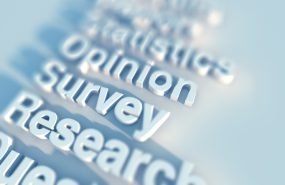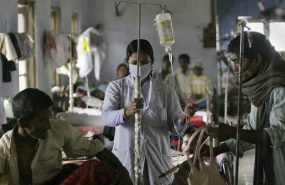Vitaly Djuma Becomes Member of the Developed Countries NGO Delegation to the Global Fund Board
- 18.02.2019 15:09
- Post Views: 995
Since its creation in 2002, the Global Fund has been the single largest multilateral funder of the global response to HIV, TB and malaria. In 2017 alone, 17.5 million people were on HIV antiretroviral therapy; 5 million people on TB treatment; and 197 million mosquito nets were distributed with the Global Fund support.
The Developed Country NGO constituency at the Global Fund Board includes representatives of NGOs based and headquartered in developed countries of the European Union, the United States, Canada, Japan, and Australia. Bringing the voices and needs of civil society to the Global Fund, the Developed Country Delegation aims to ensure that the Global Fund remains ambitious, transparent, accountable and achieves maximum impact.
“Since its inception, the Global Fund successfully championed meaningful involvement of affected populations in the national and global responses to the three epidemics. It was the Global Fund that showed how community representatives and government officials should and could talk as equals,” said Vitaly Djuma, Executive Director of ECOM. “I am honored to join the Developed Country NGO Delegation. Together with other members, I will work to ensure that while adopting its approaches in a changing global health environment, the Global Fund not only continues but strengthens its commitment to most affected communities, including gay men and other men who have sex with men, transgender people, people who use drugs, and sex workers.”
2019 is a year of the Global Fund’s Sixth Replenishment, crucial to sustain and accelerate the progress achieved by the Fund in ensuring access to prevention and treatment for all people living with, and affected by, the three diseases. For the communities of gay and bisexual men as well as trans people, this includes sustainable and secure support to comprehensive package of human rights oriented services that are needed to halt the HIV epidemic which continues in our communities around globe. To achieve this, ECOM will closely work with the Developed Country NGO Delegation as well with the other two civil society delegations at the Global Fund Board.
Start writing or type / to choose a block
Related News
Global Fund Strategy Development – Open Consultation Questions
COVID-19 is radically altering global health, politics and economics, and the impact upon programs fighting HIV, TB and malaria will likely be tremendous. The new pandemic could completely derail our vast efforts of the past 20 years. At the same time, it has galvanized public awareness on global health security in a way that builds […] Read moreGlobal Fund Technical Brief Tuberculosis, Gender and Human Rights
The purpose of this technical brief is: to assist Global Fund applicants to consider how to include programs to remove human rights and gender-related barriers to tuberculosis prevention, diagnosis and treatment services within funding requests, and to help all stakeholders ensure that TB programs promote and protect human rights and gender equality. Post Views: 942 Read moreGlobal Fund Technical brief on HIV and key populations Programming at scale with sex workers, men who have sex with men, transgender people, people who inject drugs, and people in prison and other closed settings
The purpose of this technical brief is to provide information for countries preparing funding requests for comprehensive programs that address the cascade of HIV prevention, diagnosis, treatment, and care for the following key populations: male, female, and transgender sex workers, gay men and other men who have sex with men, transgender people (especially transgender women), […] Read moreServices for migrants and refugees from Ukraine – HIV/TB care with a focus on key populations
Due to the increasing flows of refugees from Ukraine because of Russia’s invasion of Ukraine, the EECA Regional Platform created a spreadsheet to fill contacts details of face-to-face and online services for refugees and migrants (with a focus on HIV/TB care and key population groups).
Regional Platform – EECA
This web-resource is a part of new regional communication and coordination project “Regional Civil Society and Community Support, Coordination and Communication Platform - EECA”, implemented by Eurasian Harm Reduction Association (EHRA).
Tags
See also
-
EECA’s Regional Platform monthly Newsletter #21, February 2026 26.02.2026 11:56
-
Webinar: Results of the 54th meeting of the Global Fund‘s Board 23.02.2026 10:24
-
EECA’s Regional Platform monthly Newsletter #20, January 2026 27.01.2026 12:58
-
Global Fund Eligibility List 2026 27.01.2026 11:19







